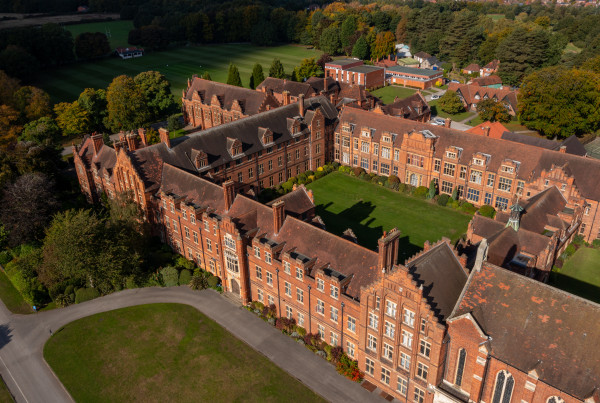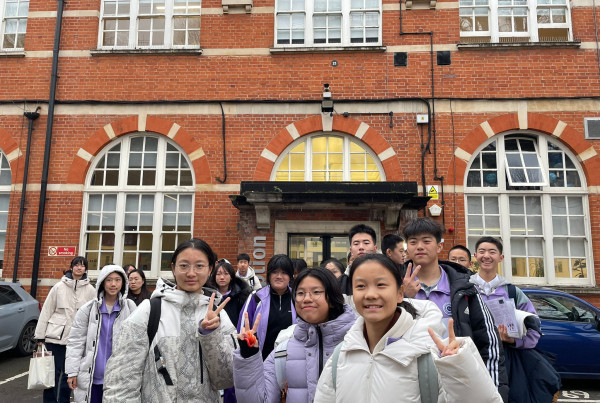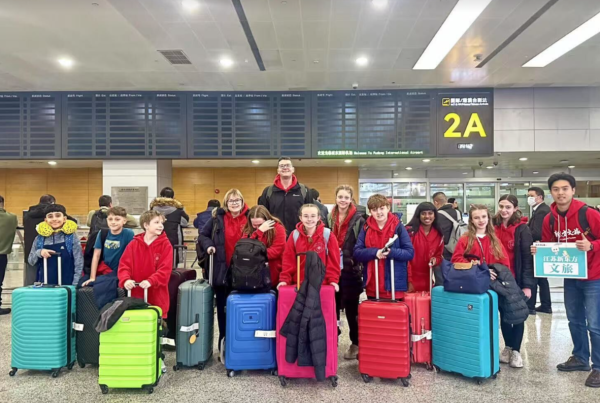The following article comes from Chris Farman, Assistant Head (Partnerships & Wellbeing) at Denstone College.
At Denstone College, the wellbeing of our pupils comes first. As Assistant Head (Wellbeing), I am proud to be responsible for a comprehensive educational programme that our pupils in class and beyond. Our approach is holistic; it provides each child with the skills they need to thrive academically, socially and emotionally.
A Structured Wellbeing Curriculum
Our Wellbeing Curriculum is thoughtfully designed to meet the evolving needs of our pupils from 1st Form upwards. Each term revolves around key themes that promote personal growth and resilience.
In the 1st Form, our focus is on helping pupils settle confidently into life at Denstone. Through topics such as personal identity, goal setting, friendship, and emotional regulation, pupils are introduced to the foundations of wellbeing. They learn how to manage transitions, respect others, and begin developing positive habits around sleep, diet, and physical health. As they progress through the year, we introduce themes such as puberty, consent, body confidence, and the influence of peers—ensuring that they are not only safe but empowered to make informed choices.
In the 2nd Form, the curriculum extends into digital wellbeing and media literacy. Pupils examine their online presence and learn to critically analyse information in a digital world. We also build on their understanding of healthy relationships by exploring boundaries, stereotypes, and identity, including discussions around sexual orientation and gender. Practical sessions around contraception, peer influence, and decision-making are complemented by a focus on mental health, equality, and emotional resilience—giving pupils a clearer sense of self and strategies for maintaining balance in their lives.

By the 3rd Form, our pupils are ready to consider their future in greater depth. The year begins with career planning, leadership skills, and financial literacy, as pupils start preparing for GCSE decisions. We also address more challenging topics such as gang influence, substance misuse, and anti-social behaviour, helping them develop strategies to navigate external pressures. Mental health education becomes more detailed, including sessions on self-harm and eating disorders, and pupils are encouraged to recognise the power of healthy coping mechanisms. Later in the year, they explore sexual health, relationships, and the legal and emotional aspects of consent and contraception.
The 4th Form curriculum consolidates previous learning while preparing pupils for the demands of Key Stage 4 and young adulthood. Pupils learn to manage academic pressure, build resilience, and understand their own mental health needs. Relationships education is deepened, addressing coercion, abuse, and the responsible use of online platforms. A strong careers and employability strand continues, with lessons on CV writing, job applications, and work experience. We also explore complex issues such as discrimination, extremism, and the responsibilities of adulthood—giving pupils a safe space to ask questions, challenge stereotypes, and affirm their values.
Beyond the Classroom: Integrated Support Systems

Wellbeing at Denstone College goes well beyond timetabled lessons. Our Health & Wellbeing Centre, headed up by Mrs Michelle Edge, provides a haven for pupils to find support. The Centre allows access to counselling, health guidance, and an environment where students can talk confidentially about their worries.
Our pastoral structure is robust, and house tutors and heads of house play a critical role in monitoring and steering student welfare. Regular checks in, mentoring sessions, and two-way dialogue ensure that all students have chances to be seen and heard.
Moreover, our boarding community fosters a sense of belonging and community. Boarding staff are trained to recognise distress and are always available to provide advice and support. The integration of wellbeing practices into daily routines allows boarders to develop resilience and independence.
Engaging the Wider Community
We are a strong believer in the power of partnership. Through the inclusion of parents, guardians, and external specialists, we create a network of support around our students. Workshops, information evenings, and open forums offer a chance to learn and develop together; Online Safety Expert, Karl Hopwood, recently led an incredible day of pupil and parent sessions, covering themes such as sextortion, nude image sharing and online abuse.
Our partnerships with organisations such as Working with Parents in Sport (WWPIS) also enhance our wellbeing programme. These partnerships provide additional resources and perspectives, making our programme more relevant and effective.
A Commitment to Ongoing Development
Wellbeing is not a static entity; it adapts to the dynamics of our changing pupil and societal needs. As Denstone College, we remain committed to ongoing review. Pupil, parent and staff feedback forms an integral part of this ongoing process, thereby keeping our intervention dynamic and responsive.
Finally, wellbeing is firmly embedded in the fabric of Denstone College. Through a formulised curriculum, supportive provision systems, community involvement, and an ongoing drive to improve, we seek to support well-adjusted, well-rounded individuals ready to face the needs of the twenty-first century.




